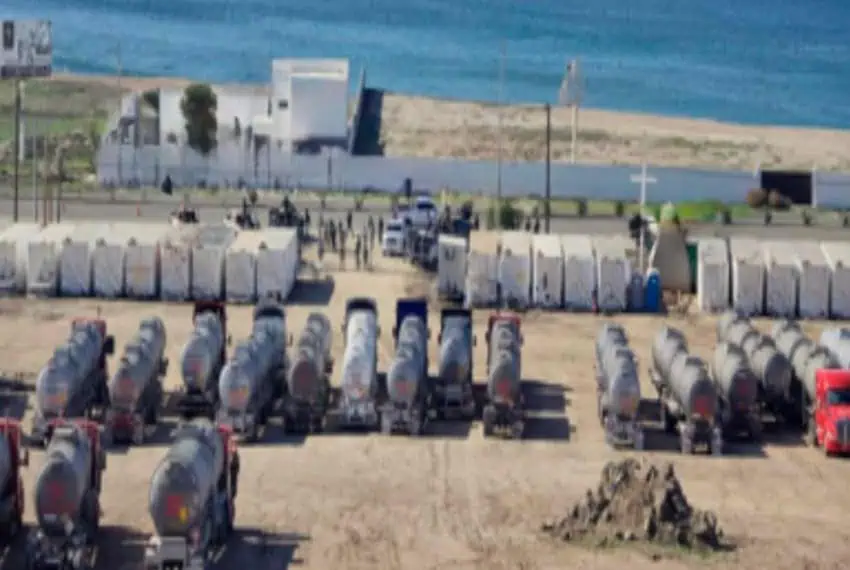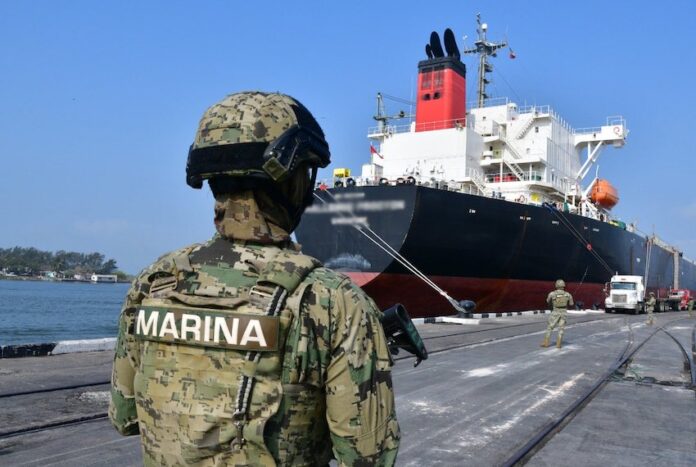Mexican authorities have seized over 17 million liters of stolen diesel and hydrocarbons in two major operations, marking a significant blow to illegal fuel trafficking networks.
The largest single seizure — 10 million liters of diesel — occurred in Tamaulipas about 10 days after a Singapore-flagged ship, the Challenge Procyon, arrived at the port of Tampico on March 19, allegedly transporting lubricating oil additives.
En Altamira, Tamaulipas, elementos de @SEMAR_mx, @FGRMexico y @SSPCMexico realizaron un aseguramiento de 10 millones de litros de diésel. Se aseguraron 192 contenedores, un buque, 29 tractocamiones, armamento y vehículos.
Esta acción es resultado de la coordinación del Gabinete… pic.twitter.com/zYOZydGYir— Omar H Garcia Harfuch (@OHarfuch) March 31, 2025
However, the vessel, which had sailed on March 16 from Beaumont, Texas, was soon linked to illicit hydrocarbon trafficking. Hydrocarbons are a class of compounds that includes gasoline, diesel and many other substances both in gaseous and liquid forms.
Federal forces including the Navy (Semar), the Attorney General’s Office (FGR) and the National Guard (GN) raided multiple sites in Altamira, Tamaulipas, seizing 192 containers, 23 tractor-trailers, firearms and documentation.
In a press release issued Monday, Security Minister Omar García Harfuch emphasized that the operation was a result of strong intelligence and investigative work and coordination among many agencies, including the Specialized Prosecutor’s Office for Organized Crime (FEMDO) and the Ministry of Security and Civilian Protection (SSPC) plus those mentioned above.
A separate operation in Ensenada, Baja California, uncovered 7.9 million liters of hydrocarbons on March 29 at a property reportedly owned by former Morena senator Gerardo Novelo Osuna, an ally of former President Andrés Manuel López Obrador.
The newspaper El Financiero wrote that it “was described as the largest seizure of ‘black gold’ ever found in a single location.”
Novelo strongly denied involvement, stating he had rented the property to a man known as “Gussy” (Luis Francisco Rodríguez Orozco) under a lease agreement.
Located 1.2 kilometers from a Pemex pipeline, the site contained 119 storage tanks, 46 tanker trailers and 19 tractor-trailers.
In both operations, authorities emphasized interagency collaboration.

The Tamaulipas operation alone involved six federal agencies and also recovered two handguns, 102 cartridges and computer equipment, alongside the fuel.
In Baja California, Pemex security teams discovered the storage site during intensified patrols, with ongoing monitoring by defense officials.
Critics on social media dubbed the Baja California case “huachicol del bienestar” — combining the concept of fuel theft (huachicol) with government welfare programs. They apply it to people who have benefited from stealing and illegally selling diesel and gasoline who are tied to political figures or parties, especially those associated with populist policies aimed at benefiting the public.
Huachicol alludes to activities such as tapping pipelines, using tunnels to steal gas, hijacking tanker trucks or storing stolen fuel for resale on the black market. The term originates from its historical use to describe adulterated products, evolving to signify stolen or diluted fuel in Mexico.
Combined, the Tamaulipas bust, which Semar deemed “historic,” and the Baja California operation netted more than 17 million liters, represent one of Mexico’s largest crackdowns on fuel theft over the past decade.
With reports from El Financiero, Diario de Yucatán and Eme Equis
